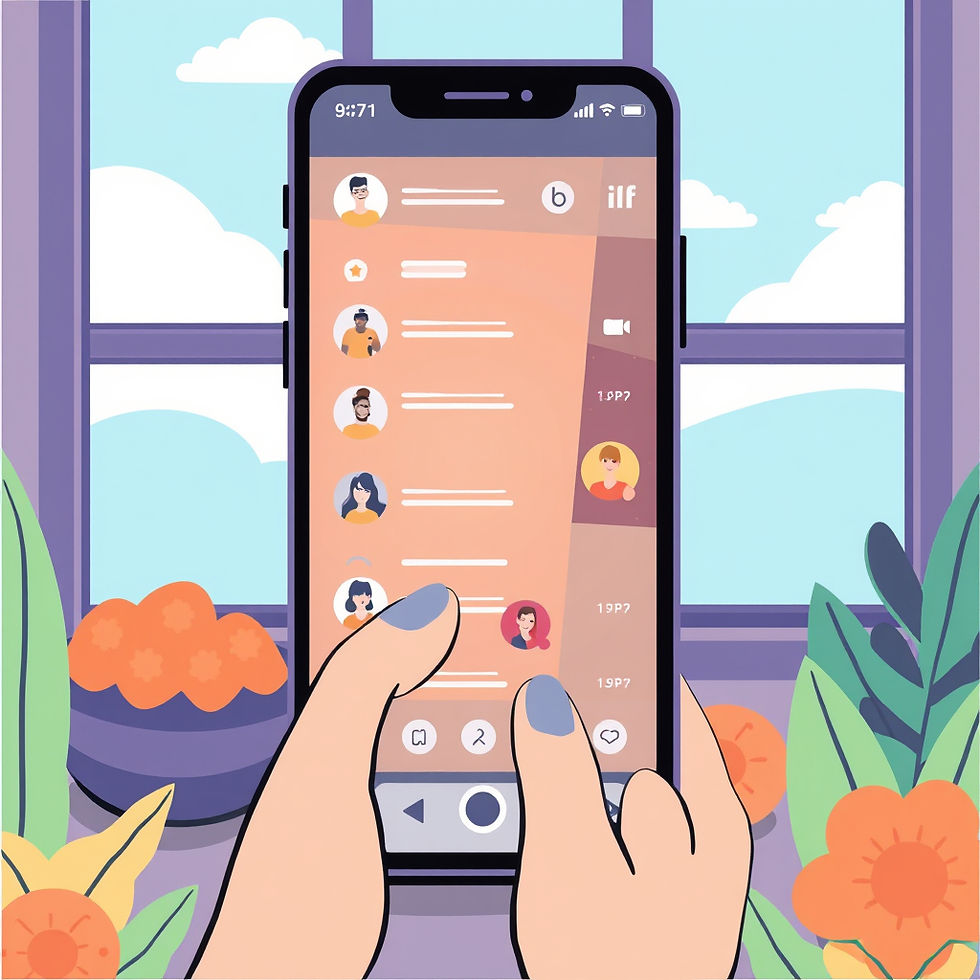Problems sleeping with autism / ADHD - and how you can help
- Thomas Scott

- Oct 4, 2024
- 4 min read

Neurodivergent persons (autism, ADHD) can often struggle to get a good night's sleep. Here is a breakdown of how autism / ADHD may cause poor sleep - and possible solutions that may help..
AUTISM / ADHD SLEEP PROBLEMS CAN BE CAUSED BY:
A general increase in anxiety / struggling to relax could cause insomnia. Lack of sleep then increases anxiety, so sadly creating a vicious cycle.
Struggling to wind down and feel settled enough to actually be in the right frame of mind to sleep
Sensory issues - especially to sounds and other noises which cause heightened upset / distraction as you lay in bed trying to sleep. Equally, any unexpected noises that might not disturb a neurotypical person might wake up someone who is neurodiverse very easily.
Heightened sensitivity to blue light. This is especially a problem due to smart phone usage, but also other screens - such as tablets, laptops and TVs etc..
Food allergies or increased sensitivity to stimulants in food (such as caffeine in tea / coffee or refined sugar etc... )
TOO MUCH SLEEP - otherwise known as hypersomnia
Fighting being tired and trying to stay up too late will cause you to go to be over tired. This is turn makes you more likely to wake up too early.

WHAT CAN HELP AUTISM / ADHD SLEEP ISSUES:
Keep a routine
Although you should not try and stay up for the sake of going to bed at a set time (which can make you over tired when sleeping and result in you waking up early) - you should try and aim for a regular 'bedtime'.... Prepare for this time of night by winding down. Try and avoid looking at blue light emitting screens if at all possible for at least 30 mins before bedtime. If you must look at your phone, then make sure you have a blue light filter switched on. Something like 'Twilight' for Android or turn on 'Night Shift' on your iPhone.
Make your bedroom 'autism / ADHD friendly'
Block out light sources. Especially LED street lamps - with blackout curtains. Also, cover or switch off any 'stand by' lights which are present in your room.
Wear noise reducing ear plugs
Have a basic alarm clock and keep your phone and other distractions away from the side of your bed
If you are distracted by smells, use an essential oil diffuser with a calming oil that will help promote sleep (such as lavender or chamomile) .
Diet
Stimulants (such as caffeine and refined sugar) can affect your ability to unwind and sleep. So avoiding these at least an hour before bedtime could make a real difference.
If you have and allergies or sensitivities caused by food which is causing discomfort in any way, this will most likely affect your sleeping abilities. If you suspect this is the case, you should also visit your GP to discuss this.
Meditation
Counting sheep is something most people are familiar with, but a far more effective method of quieting the mind to help induce sleep is meditation. Some people can effectively meditate by simply repeating a mantra while lying still. The most heard of one probably being 'Om'. But, as you might expect with autism and the difficult with focusing, something to encourage the mind to focus is probably necessary. You might find playing meditation music is ideal to focus on. Maybe, an oil diffuser will help focusing the mind by concentrating on the gentle aroma of an oil. There are many meditation apps. But the only danger is the temptation to have your phone too close to the bed and the act of using the app causes temptation / distraction and before you know it, you are scrolling through your social media feed!
Autism Sleep Diary / Journal
You might find keeping a log of your sleep patterns gives you insights into what helps / distracts from sleeping. It might be quite insightful and revealing in ways that lead you to your own conclusions about what is working least or best when it comes to falling asleep.
If you use a particular sleep aid for a week, you can record how effective this has been. Then, if you try for the second week an alternative technique, you might really see a pattern emerging of what works best.
Conclusion: Autism / ADHD and Problems Sleeping
With the many people I have supported who are neurodivergent (autism, ADHD) - I often see that someone who is struggling in the workplace due to autism / ADHD is likely to carry that worry and anxiety with them when they go home. Obviously in that period when you are lying there trying to relax and sleep; that is when the problems of the day bubble up and swirl around your mind just when you least want them to. So unfortunately, this manifests in problems sleeping - especially the anticipation of another day at work / or university. So it has been really encouraging for me to find that by tackling the issues in the workplace that autism might cause (with work mentoring or coaching), this reduction in anxiety can really help when a person is struggling to sleep. This can be a huge step towards breaking the cycle or anxiety issues causing lack of sleep / and the lack of sleep causing anxiety issues.





Comments